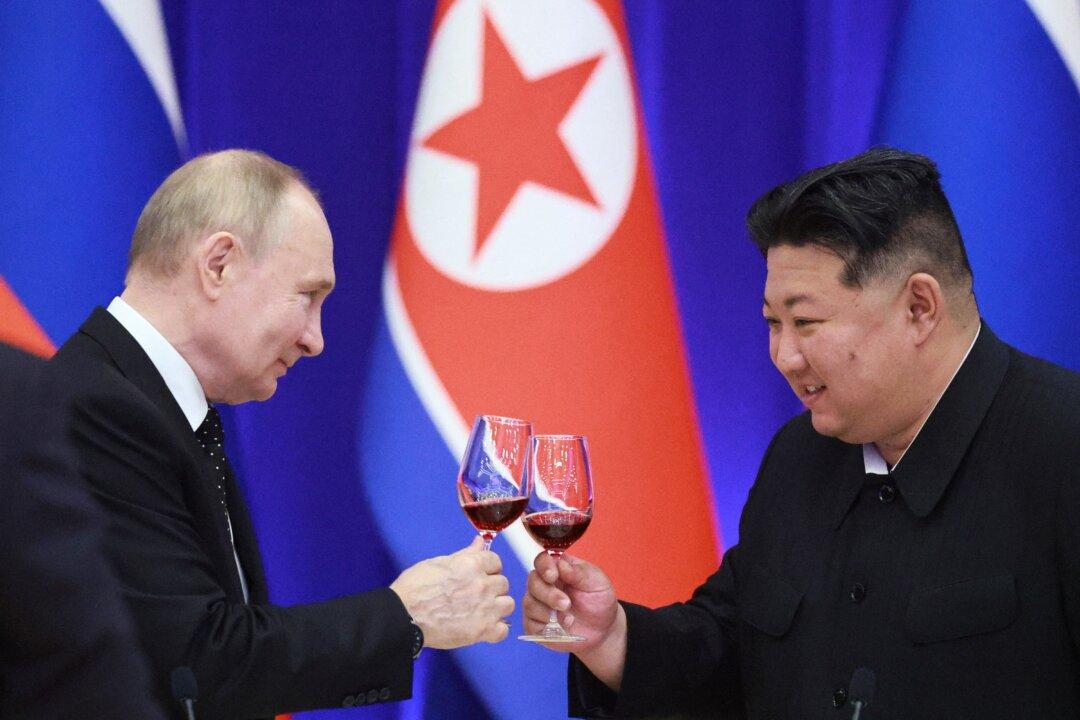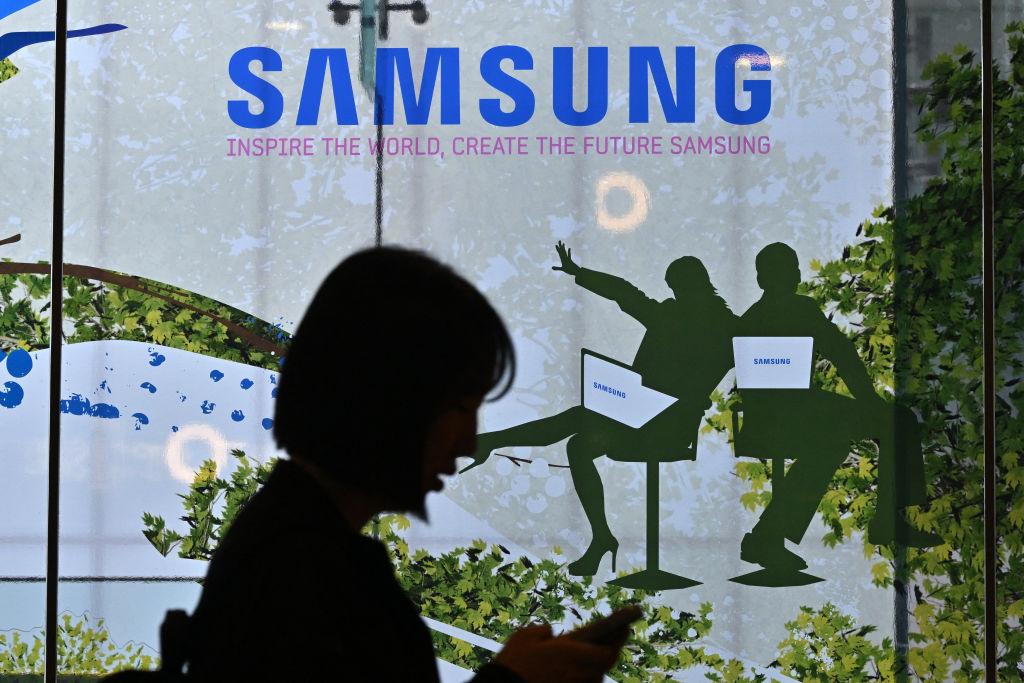South Korea is a technological powerhouse and a key part of the global supply chain. It’s now also caught in the intensified strategic rivalry between the United States and China. Both superpowers are wanting the East Asian nation to pick a side.
Following many visits from top U.S. officials, Beijing last week sent Li Zhanshu, China’s third-highest-ranking Chinese Communist Party (CCP) official, to South Korea, to put pressure on Seoul’s foreign policy direction.
Li, chairman of the Standing Committee of the National People’s Congress, arrived in Seoul accompanied by a 66-member delegation on Sept. 15.
During his three-day visit, he met with President Yoon Suk-yeol, his South Korean counterpart Kim Jin-pyo, and other top Korean officials.

It has been seven years since such a high-profile meeting took place. Li’s predecessor Zhang Dejiang visited South Korea in 2015.
Li met with Yoon and South Korean National Assembly Speaker Kim Jin-pyo on Sept.16, in a public meeting where South Korea and China agreed to expand cooperation, strengthen strategic communications to resolve the North Korean nuclear issue, and maintain peace on the Korean Peninsula.
The THAAD Issue
THAAD is a U.S.-designed and manufactured anti-missile system that was installed in South Korea between 2016 and 2017 as a bulwark against a potential North Korean missile attack.But Beijing has insisted that the deployment of THAAD affects China’s security and has since adopted a series of countermeasures against South Korea.

In response to the THAAD issue, Yoon reportedly told Li during the meeting that the U.S.-led anti-missile system should not hinder bilateral relations.
However, Li reportedly expressed the CCP’s unilateral position without hesitation in the private meeting with Korean National Assembly Speaker Kim Jin-pyo.
To Li’s comment, Kim replied that the THAAD system is a “means of self-defense to protect our people from North Korea’s serious nuclear and missile threats, and it is not a means of threatening a third country.”
US-Led Alliances
The United States has pushed South Korea to join its many alliances, which China strongly opposes.The U.S.-led Chip 4 alliance aims to strengthen cooperation in the semiconductors industry among the United States and the East Asian powerhouses of Taiwan, South Korea, and Japan to build a secure supply chain that excludes China.

Taiwan and Japan have already agreed to participate in the alliance in March.
In response to Li, Kim denied that the alliance would exclude China, adding that in order to stabilize the supply chain between South Korea and China, it is necessary to further develop multi-level economic cooperation, such as the South Korea-China Free Trade Agreement (FTA).
Likewise, South Korea’s participation in the U.S.-led Indo-Pacific Economic Framework (IPEF) in May has also concerned Beijing. During the talks, Li said such a move would “suppress China’s economic influence.”
However, Kim explained that the framework is “guided by the principles of openness, transparency, and inclusiveness. A platform for stability and prosperity in the Indo-Pacific.”
Critical Minerals Supply
Shortly after South Korea’s decision in May to participate in the Indo-Pacific Economic Framework (IPEF), the country joined the U.S.-led Minerals Security Partnership (MSP) to cut its heavy reliance on Chinese raw materials and mineral imports.South Korea’s foreign ministry said on June 15 that the country’s decision to join the MSP is a follow-up measure to the U.S.-South Korea summit in May and to “pave the way for supply chain diversification.”

The MSP is an international alliance with aims to secure a stable and diverse mineral supply chain. Member countries include the United States, South Korea, Canada, Japan, Germany, the United Kingdom, the European Commission, Finland, France, Australia, and Norway.
The partnership is widely seen as an effort to curb Chinese dominance in the critical minerals market.
Critical metals include cobalt, copper, precious metals, nickel, uranium, lithium, magnesium, and many others. They are raw materials used in critical industries such as semiconductors, telecommunications, computing, aerospace, defense, and electric car batteries.
Since China controls over two-thirds of the global production of rare earth elements crucial to modern technologies, a cutoff of those supplies will significantly harm other economies.
In many instances, Beijing has weaponized its dominance in the minerals market by threatening to cut off supplies to other nations.
For example, in 2010, Beijing blocked its rare earth product exports to Japan over the long-standing dispute about control of unpopulated islands in the East China Sea, after an incident between ships from Japan’s naval self-defense force and Chinese fishing vessels.
Japan did not relinquish its claims to the islands amid the tension but actively warned other nations of China’s unreliable trading practices, including recent warnings from Japan’s Ambassador to Australia, Yamagami Shingo, as Beijing employed similar tactics by imposing quotas and large tariffs on Australian goods coming into China. Beijing’s move came after Australia’s call for an investigation into the origin of the COVID-19 pandemic.
Strategic Dilemma
Although the Yoon administration has made a clear shift in cementing relations with the United States and joined several U.S.-proposed alliances since taking office in May, it is also trying to maintain economic ties with China.In addition, South Korean tech conglomerates Samsung Electronics and S.K. Hynix both have major memory chip production plants in China.
For example, just last year, a shortage of urea supplied by China threatened to cripple economic activity in South Korea. Among other uses, urea is used to cut emissions in diesel vehicles and make fertilizer.
‘Wiser to Pick a Side Instead of Playing Tightrope Diplomacy’
The Chinese state-run Global Times published an editorial titled “South Korea Should Have the Courage to Say ‘No’ to U.S. Coercion” on July 20, criticizing the Chip 4 alliance and threatening South Korea that joining it could lead to significant losses.The article noted that 60 percent of South Korea’s $128 billion in semiconductor exports last year were exported to China and Hong Kong, and to leave such a market would be equivalent to “commercial suicide.”
Under mounting pressure from Beijing, South Korea has yet to announce its decision on whether to participate in the Chip 4 alliance. The country repeatedly stated that it does not wish to “provoke China” and hence has taken a non-committal approach to certain U.S.-led initiatives.
In an interview with The Epoch Times, Wen Rui, a current events commentator and China expert, said, “If South Korea insists on trying to find a balance between [the U.S. and China], it would likely end up offending both sides.”
“It would be a wiser move for [South Korea] to pick a side and stand with it,” Wen said, adding that the United States would be the clear choice as it aligns with public opinion and the country’s long-term interests.
He explained that even if South Korea becomes diplomatically estranged from China, its top memory chips can still be exported to China.
“For example, Taiwan’s chips continue to be exported to China despite the stalemate with the CCP,” Wen added.





